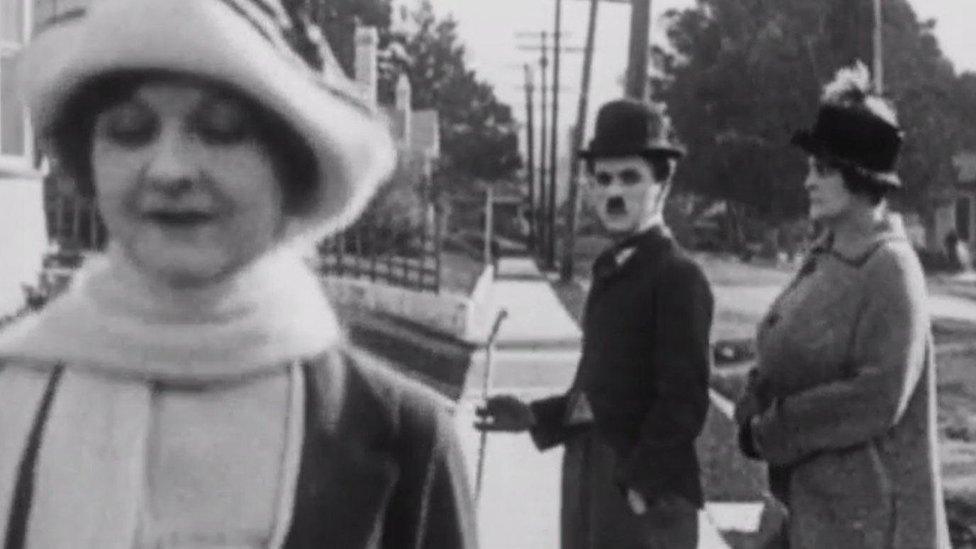'Distracted boyfriend' advert ruled sexist
- Published

A Swedish internet company broke gender discrimination rules by using a popular meme in an advertisement, the country's advertising regulator has ruled.
Bahnhof posted a version of the "distracted boyfriend" meme on Facebook, to advertise job vacancies.
The image, which shows a man looking at a woman in a red dress while his girlfriend looks on in horror, has been widely parodied online.
But the regulator said the image was discriminatory to both men and women.
Bahnhof's version of the meme shows:
"you", the distracted boyfriend
"Bahnhof", the woman in a red dress
"your current employer", the girlfriend looking on in horror
Allow Facebook content?
This article contains content provided by Facebook. We ask for your permission before anything is loaded, as they may be using cookies and other technologies. You may want to read Meta’s Facebook cookie policy, external and privacy policy, external before accepting. To view this content choose ‘accept and continue’.
The regulator, Reklamombudsmannen, said the image objectified women by showing the man's "appreciative reaction".
It was also "sexually discriminatory" towards men by "imparting a stereotype picture of men looking at women as being interchangeable".

The regulator said Bahnhof's ad was sexist
The regulator told the BBC the ruling was to be taken as advice on good advertising ethics.
Bahnhof will not have to remove the image and will not be fined.
In a statement, Bahnhof said: "Anyone who supports both the internet and meme-culture knows precisely how this meme is used and interpreted.
"We explained both the purpose of the image and meme-culture for the regulator but they have chosen to interpret the post in a different way."
Allow X content?
This article contains content provided by X. We ask for your permission before anything is loaded, as they may be using cookies and other technologies. You may want to read X’s cookie policy, external and privacy policy, external before accepting. To view this content choose ‘accept and continue’.
The ruling was largely ridiculed online by people who suggested the regulator had failed to correctly interpret the image.
- Published21 November 2017

- Published12 June 2018
